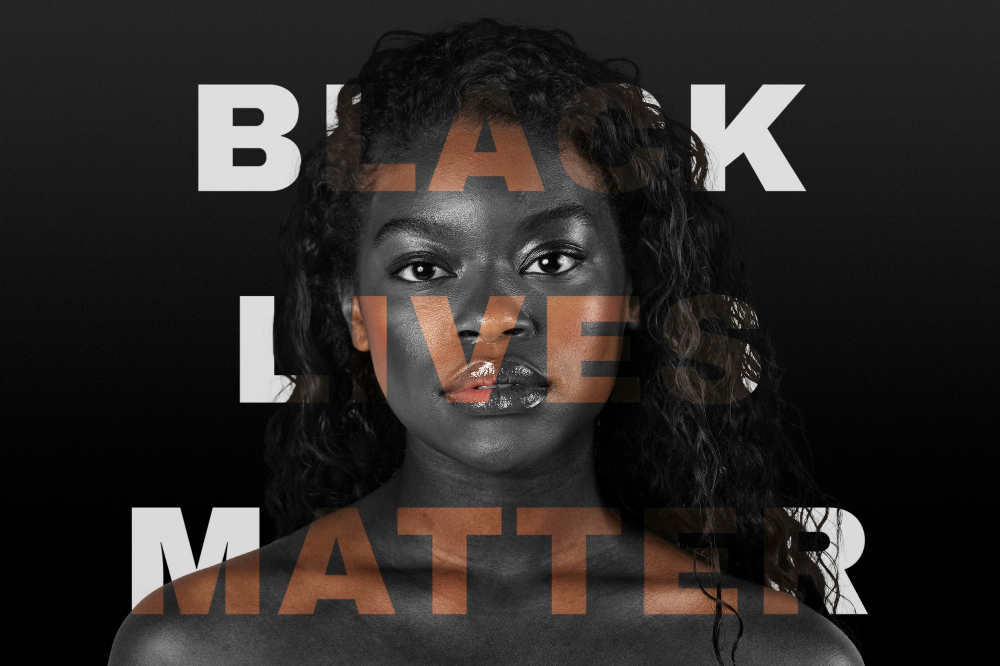George Soros’s Open Society Foundations have funded racial justice initiatives, but there is no evidence he directly funds or orchestrates BLM protests. Claims suggesting he pays protesters or controls the movement are unfounded and have been debunked by multiple fact-checking organizations. These narratives often originate from politically motivated misinformation rather than verified facts.
The Origins of the Claims.
The claims linking George Soros to funding the Black Lives Matter (BLM) protests are rooted in a broader historical context of his philanthropic activities. As a billionaire investor and philanthropist, Soros has long been involved in funding various social justice initiatives, human rights organizations, and political movements through his Open Society Foundations.
His commitment to promoting democracy and open societies has made him a target for conspiracy theories, particularly among those who perceive his philanthropic efforts as a threat to their political beliefs. In this environment, it is crucial to fact-check the truth behind claims about George Soros funding Black Lives Matter protests.
Historically, Soros has been linked to numerous movements and causes, from pro-democracy efforts in Eastern Europe to immigration reform in the United States. These connections have often sparked controversy, leading to unfounded allegations that he is orchestrating social upheaval through financial support.
For instance, during the 2016 U.S. presidential election, claims circulated that Soros was financing anti-Trump protests, which were largely fueled by partisan media narratives. The association of Soros with various left-leaning causes has created an environment ripe for misinformation, allowing individuals and groups to exploit his name for their agendas.
The rise of social media has significantly amplified these allegations, enabling rapid dissemination of misinformation and conspiracy theories. Platforms like Facebook and Twitter have become breeding grounds for unfounded claims, where sensationalist narratives can gain traction without substantial evidence.
Posts linking Soros to BLM protests often lack credible sources and rely on anecdotal evidence, further blurring the line between fact and fiction. This phenomenon underscores the importance of critical thinking and the need for rigorous fact-checking in an age where misinformation can spread like wildfire.
As we delve deeper into the claims surrounding Soros and BLM funding, it becomes essential to distinguish between legitimate concerns about philanthropy’s influence on activism and baseless accusations that serve only to sow division.
Understanding the origins of these claims allows us to better navigate the complex landscape of political discourse while fostering informed discussions about social movements and their funding sources.
Understanding Black Lives Matter.
The Black Lives Matter (BLM) movement emerged in 2013 as a response to the acquittal of George Zimmerman, who was charged with the murder of Trayvon Martin, an unarmed Black teenager. The phrase “Black Lives Matter” quickly evolved from a social media hashtag into a powerful rallying cry against systemic racism and police brutality.
Co-founders Alicia Garza, Patrisse Cullors, and Opal Tometi sought to create a platform that not only addressed individual instances of racial injustice but also aimed to dismantle the broader structures that perpetuate inequality. BLM’s formation was rooted in grassroots activism, signaling a shift towards a more inclusive dialogue about race in America.
One of the key objectives of BLM is to advocate for policy reforms that address systemic racism and promote accountability for law enforcement agencies. The movement emphasizes the need for societal change through education, awareness, and community engagement.
While BLM operates largely as a decentralized network with various local chapters, it has garnered significant attention and support from a wide array of organizations and individuals. This includes political donations from those who align with its mission, indicating a complex landscape of funding sources that extend beyond any single benefactor.
Understanding the distinction between decentralized protests and centralized funding is crucial when analyzing BLM’s operational model. While some may assume that large donations from wealthy individuals like George Soros imply direct control over the movement, the reality is more nuanced.
BLM chapters often operate independently, relying on local fundraising efforts, community support, and small-scale donations to finance their initiatives. This decentralized approach allows for diverse voices and strategies within the movement, making it less susceptible to the influence of any one donor or organization.
Thus, while Soros’s philanthropic activities have supported various social justice causes, attributing his financial contributions directly to BLM protests oversimplifies the intricate dynamics at play.
Analyzing the Evidence.
In the quest to understand the claims linking George Soros to the funding of Black Lives Matter (BLM) protests, it is crucial to examine credible sources and evidence. Numerous fact-checking organizations have investigated these allegations, often finding little to no substantiation for them.
For instance, a report by Snopes outlined how the narrative of Soros funding BLM emerged from a broader conspiracy theory that has been repeatedly debunked.
It highlighted that while Soros is known for his philanthropic endeavors, specifically through the Open Society Foundations, there is no direct evidence that he has financially supported BLM as an organization or its protests.
Statements from BLM representatives further clarify the movement’s funding sources. Leaders within the organization have consistently emphasized that BLM operates on a decentralized model, relying heavily on grassroots donations and community support rather than centralized funding from wealthy donors.
In various interviews, members have pointed out that while they welcome financial support aligned with their mission, they do not depend on any singular figure, including Soros, for their operational budget. This assertion underscores the autonomy of the movement and its commitment to grassroots organizing.
A closer look at financial records reveals that BLM’s funding comes from diverse channels, including individual donations from supporters and smaller grassroots fundraising efforts.
For example, during the height of the protests in 2020, BLM received significant donations through platforms like ActBlue, which aggregates contributions for various progressive causes.
These records indicate that thousands of individuals contributed to the cause, reinforcing the idea that BLM thrives on community backing rather than external funding from high-profile figures.
Ultimately, fact-checking the truth behind claims about George Soros funding Black Lives Matter protests reveals a complex narrative.
While philanthropy undoubtedly plays a role in social justice movements, attributing BLM’s success or initiatives solely to Soros oversimplifies and misrepresents the myriad sources of support that fuel this vital movement.
As we dissect these claims, it becomes evident that critical analysis and reliance on credible information are essential in understanding the dynamics of contemporary activism.
The Role of Misinformation.
In recent years, conspiracy theories surrounding George Soros have gained significant traction, particularly in relation to the Black Lives Matter (BLM) movement. These claims often suggest that Soros is orchestrating and funding protests to promote his political agenda.
The origins of such theories can be traced back to broader narratives that portray Soros as a puppet master behind various social movements, capitalizing on his philanthropic reputation to sow distrust among the public.
Social media platforms have played a crucial role in amplifying these theories, allowing misinformation to spread rapidly and reach audiences that might not engage with traditional news sources.
The impact of this misinformation on public perception cannot be overstated. Many individuals may view BLM protests as being less organic, believing instead that they are merely funded by wealthy elites like Soros.
This perception undermines the legitimate grievances and grassroots efforts that drive the movement. Activists within BLM have expressed frustration over these unfounded claims, stating that they distract from the critical issues of racial injustice and police brutality that the movement seeks to address.
The mischaracterization of BLM as a product of external funding rather than a grassroots response can deter potential allies who might otherwise support the cause.
Numerous debunked claims illustrate the extent of misinformation surrounding Soros and BLM. For instance, some narratives falsely claimed that he donated millions directly to BLM, while investigations into financial records reveal no such contributions.
Instead, Soros’s Open Society Foundations has supported various initiatives related to social justice and equality, but not specifically BLM as an organization. Media analysis of these claims highlights how easily misinformation can morph into accepted narratives when factual evidence is overshadowed by sensationalism.
Expert Opinions.
To gain a clearer understanding of the claims linking George Soros to the funding of Black Lives Matter (BLM) protests, it is essential to consider insights from political analysts.
Many experts emphasize that while Soros is a well-known philanthropist who supports various social causes through his Open Society Foundations, there is no concrete evidence substantiating the assertion that he directly funds BLM.
Political analyst and researcher Dr. Jennifer Lawrence notes, “The narrative surrounding Soros often oversimplifies complex issues, reducing a multifaceted movement to a single financier.” This perspective highlights the importance of examining the broader context of grassroots activism rather than attributing it to one individual.
Activists within the BLM movement also provide crucial perspectives on the matter. For instance, Patrisse Cullors, one of the co-founders of BLM, has publicly stated that the organization relies primarily on small donations and grassroots fundraising efforts.
She emphasizes that the decentralized nature of BLM means that while individual supporters may receive funding from various sources, including philanthropic entities, there is no centralized funding structure directed by Soros or any other major donor.
This distinction is vital for understanding how BLM operates as a collective of local chapters with diverse agendas rather than a monolithic entity dependent on singular financial backers.
Academics studying funding in social movements further illuminate the complexities involved. Dr. Matthew Chalmers, a sociology professor specializing in activism, explains that while large donors like Soros can influence political discourse, their contributions often serve to amplify existing voices rather than create new ones.
He argues that grassroots organizations thrive on community engagement and local support, which are essential for sustainable activism. His research suggests that focusing solely on high-profile figures like Soros can obscure the significant role that ordinary citizens play in driving change. As such, the discussion around Soros funding BLM should be approached with caution and critical analysis.
In summary, expert opinions reveal a nuanced landscape regarding the funding of BLM protests. The narrative that George Soros is the primary financier lacks substantial evidence and overlooks the diverse funding mechanisms inherent in grassroots movements.
As we navigate these complex discussions, it is crucial to engage with fact-based information and recognize the variety of factors influencing social activism today. Fact Check: The Truth Behind Claims About George Soros Funding Black Lives Matter Protests serves as a reminder to critically evaluate sources and resist the allure of simplified narratives.
The Bigger Picture: Philanthropy and Activism.
Philanthropy plays a significant role in shaping social movements, as major donors can provide the financial backing necessary for grassroots organizations to amplify their voices and reach broader audiences.
For instance, funding from influential figures like George Soros has historically supported various civil rights initiatives, including LGBTQ+ rights and criminal justice reform.
While some view such support as a lifeline for underfunded causes, critics argue that the involvement of wealthy benefactors can skew the agenda of these movements, prioritizing certain narratives over others.
This tension raises important questions about the influence of money on activism and whether it reinforces or undermines the autonomy of grassroots efforts.
Moreover, philanthropy has the power to shape political discourse by determining which issues receive attention and funding. Organizations like the Open Society Foundations, founded by Soros, often engage in strategic grant-making aimed at promoting democratic values and human rights.
However, this approach can lead to accusations of “top-down” activism, where the goals set by donors might not always align with the needs or desires of local communities. As a result, activists may find themselves navigating a complex landscape where they must balance the advantages of financial support with the potential compromises of donor expectations.
Transparency in funding is another critical ethical consideration in this dynamic. When significant donations are made to social movements, it is vital that both the donors and recipients maintain open lines of communication regarding the intent and impact of such contributions.
This transparency fosters accountability and helps prevent the perception of manipulation or exploitation of social causes for personal gain.
Initiatives like the “GiveWell” platform have emerged to promote greater transparency in charitable giving, allowing donors and activists alike to assess the effectiveness and ethical implications of their financial choices.
Ultimately, fostering an environment of openness can help sustain trust within movements and encourage broader participation from diverse communities.
In summary, while philanthropy undeniably fuels many progressive movements, it is essential to scrutinize its implications for activism. The influence of major donors can be both empowering and potentially limiting, raising critical questions about agency, ethics, and the direction of social change.
As discussions surrounding funding continue to evolve, a commitment to transparency and inclusivity will be key in ensuring that movements remain true to their foundational goals while effectively addressing societal challenges.
I am an accomplished author and journalist at Fact Finders Company . With a passion for research and a talent for writing, I have contributed to numerous non-fiction titles that explore a wide range of topics, from current events, politics and history to science and technology. My work has been widely praised for its accuracy, clarity, and engaging style. Nice Reading here at Fact After Fact.








